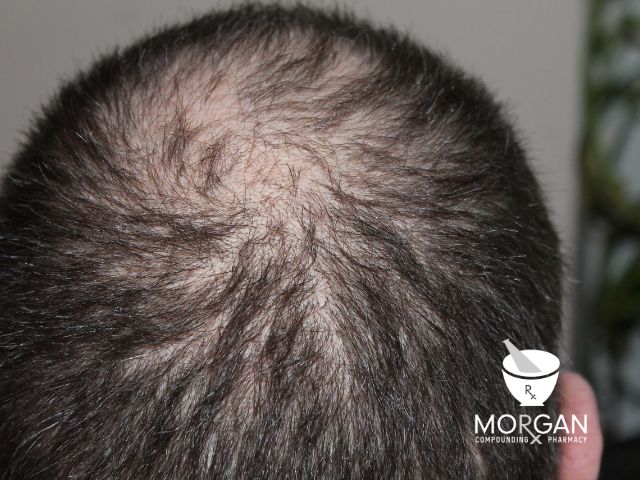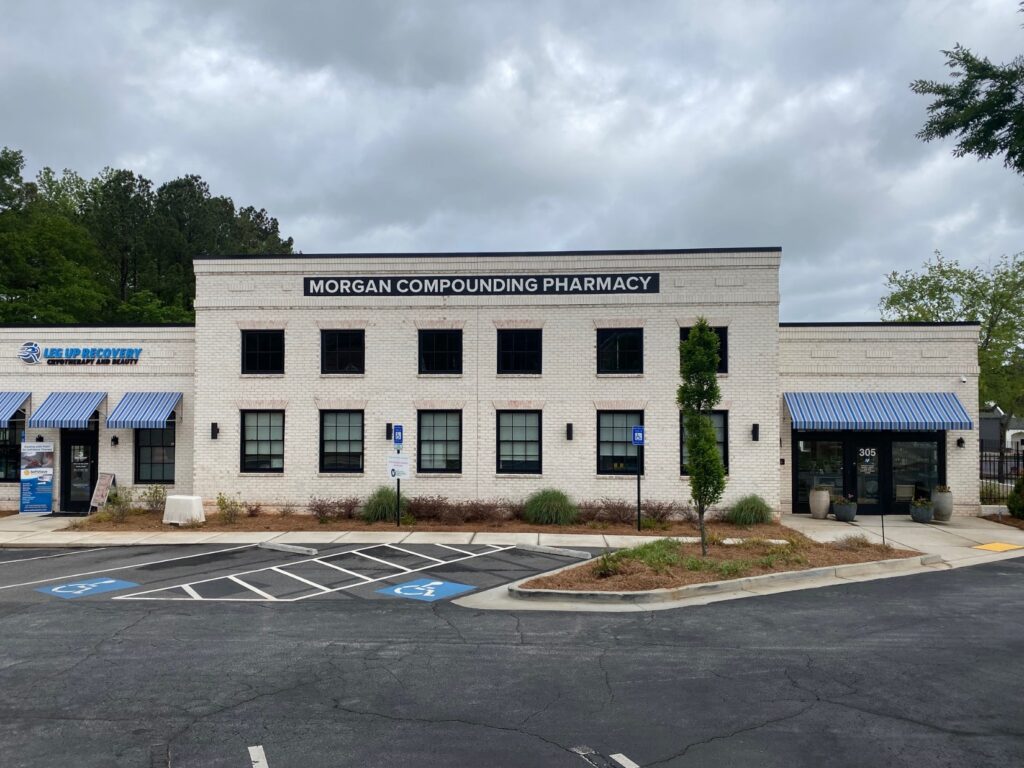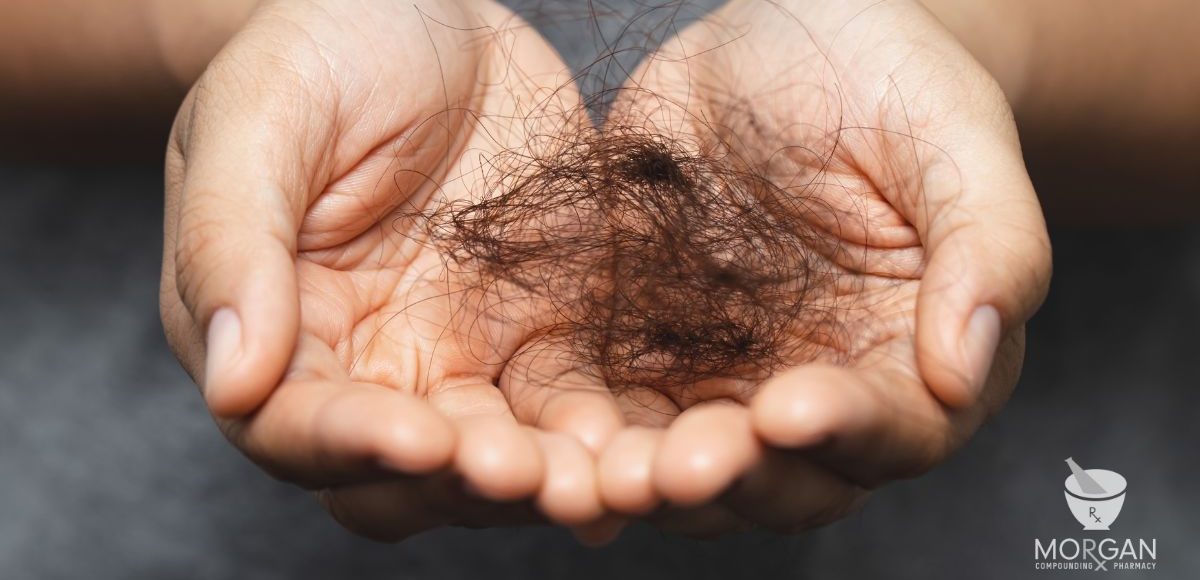“People of any age can lose their hair. Still, hair loss becomes more prevalent the older we get. By age 65, an estimated 53% of men and 37% of women will experience baldness.”
Hair loss may affect men and women at different ages. It can influence self-confidence and overall wellness. According to the American Academy of Dermatology (AAD), possible causes include genetics, hormonal changes, nutrient deficiencies, and certain medications.
What Causes Hair Loss?
Hair loss can happen for many reasons — and understanding the cause is the first step toward choosing the best mode of action. Some causes lead to temporary shedding, while others may result in permanent loss without proper care.
Common causes include:


- Genetics: Hereditary hair loss (male/female pattern baldness) is the most common type. It often starts gradually and can be managed with early therapies.
- Aging: Hair naturally thins as we get older due to slower growth cycles.
- Hormonal Changes: Conditions like PCOS or stopping certain birth control pills can trigger hair loss in women.
- Genetics: Hereditary hair loss (male/female pattern baldness) is the most common type. It often starts gradually and can be managed with early therapies.
- Aging: Hair naturally thins as we get older due to slower growth cycles.
- Hormonal Changes: Conditions like PCOS or stopping certain birth control pills can trigger hair loss in women.
- Medical Conditions: Thyroid issues, autoimmune diseases (like alopecia areata), or scalp infections can lead to sudden or patchy hair loss.
- Medications & Therapies: Chemotherapy, certain prescriptions, or even vitamin imbalances can contribute to shedding.
- Stress or Illness: Physical or emotional stress (like surgery, childbirth, or major life events) can cause temporary hair loss.
- Hair Practices: Tight hairstyles, harsh chemical solutions, and repeated scalp tension may lead to permanent damage.
- Other Factors: Poor nutrition, friction from clothing or gear, poisoning, or infections (like STIs) may also result in hair loss.
Can hair grow back?
Often, yes — especially if the cause is identified and addressed early. Some types may require medication, lifestyle changes, or professional input to restore growth. In cases where follicles are permanently damaged, regrowth may not be possible.
Morgan Compounding Pharmacy works with patients and healthcare providers to create custom prescriptions on a case-by-case basis. We prepare medications in specific strengths, forms, and combinations based on each patient. Our goal is to offer options that may support scalp and hair health for both men and women. Common ingredients include Minoxidil, Finasteride, Tretinoin, Biotin, and others. Let’s explore what to know and what to expect.
Hair Loss: A Closer Look
Hair loss can appear in different ways.
- Men often see thinning at the crown or a receding hairline.
- Women may notice more general thinning across the scalp.
Because each cause is different, the approach may need to be adjusted for each patient.
What’s Different in Compounded Hair Loss Medications Versus Commercially Available Options?
Mass produced, commercially available hair loss products come in standard strengths and forms. These may not work for every person’s unique needs. Compounding offers more flexibility.
Potential benefits include:
- Combining more than one active ingredient.
- Adjusting the strength to suit the prescription.
- Changing the form, such as making a topical foam, cream, or oral capsule.
- Avoiding certain ingredients that may cause allergies or irritation.
This approach may help patients who need options other than standard, off-the-shelf options.
Common Active Pharmaceutical Ingredients (API) in Compounded Hair Loss Medications
Minoxidil
Minoxidil is a vasodilator, originally used to address high blood pressure. When applied topically, it helps increase blood flow to the hair follicles, potentially prolonging the anagen (growth) phase of the hair cycle. This improved circulation may enhance nutrient delivery to hair follicles and stimulate dormant follicles to re-enter the growth phase.
Compounded minoxidil can be formulated in customized strengths (typically 5–10% or higher) and different vehicles such as solutions, foams, or creams to better suit individual scalp types and sensitivity levels.
Finasteride
Finasteride is a 5-alpha reductase inhibitor. It works by blocking the conversion of testosterone to dihydrotestosterone (DHT) — a hormone linked to hair follicle miniaturization in androgenetic alopecia. By reducing DHT levels, finasteride may help prevent further hair loss and promote regrowth in areas where follicles are still viable.
Finasteride can be compounded into oral or topical formulations to minimize systemic absorption and side effects, allowing for personalized dosing.
Tretinoin
Tretinoin (a derivative of vitamin A) promotes cell turnover and exfoliation of the scalp, which may improve penetration of other topical medications like compounded minoxidil. Additionally, tretinoin may help normalize the skin environment by reducing inflammation and buildup around hair follicles, creating a healthier scalp condition for hair regrowth.
It is commonly included in low concentrations in combination formulations to optimize delivery of active ingredients and enhance overall scalp health.
Biotin
Biotin (vitamin B7) plays a crucial role in keratin production, the protein that makes up hair, skin, and nails. A deficiency in biotin can lead to hair thinning or brittle hair. While biotin is often taken orally, topical use in compounded formulations may be used to complement other therapies and support hair shaft integrity.
It is often included as part of a broader nutritional support approach within topical or oral formulas aimed at improving hair strength and texture.
Other Notable APIs
Some compounded preparations for hair loss may also include:
- Azelaic Acid — may reduce scalp irritation.
- Caffeine — may improve scalp circulation.
- Nicotinamide — may support the skin barrier.
Nutrition and Lifestyle Factors
Hair and scalp health may also be influenced by:
- Eating enough protein, vitamins, and minerals.
- Gentle scalp care and avoiding harsh chemicals.
- Managing stress levels.
- Regular checkups to watch for thyroid or anemia concerns.
- Nutritional supplements to address deficiencies.
Replete
Supplement Program
by Morgan Compounding Pharmacy
One of the side effects of prescription medications is the depletion of vital nutrients and vitamins in your body.


Professional supplementation program
Working with Healthcare Providers as a Resource to Provide an Elevated Patient Experience
Morgan Compounding Pharmacy pharmacists work closely with providers to make sure they know the options available to address different types of hair loss for patients with challenging cases. Our experienced pharmacists recommend formulation ideas, explain dosage form choices, and prepare prescriptions to match the plan for each patient.
Why Georgia Practitioners Prescribe Compounded Minoxidil and Other Hair Loss Medications from Us


Hair loss may happen for many reasons. Approaches often work best when they match the person’s specific needs and preferences. Compounded prescriptions may offer flexible strengths, combinations, and forms under a provider’s guidance.
Morgan Compounding Pharmacy prepares high-quality compounded medications for men’s and women’s hair health needs. By working with healthcare providers and offering a range of ingredient options, we help patients access prescriptions made to their exact specifications.
Hair loss may happen for many reasons. Approaches often work best when they match the person’s specific needs and preferences. Compounded prescriptions may offer flexible strengths, combinations, and forms under a provider’s guidance.
Morgan Compounding Pharmacy prepares high-quality compounded medications for men’s and women’s hair health needs. By working with healthcare providers and offering a range of ingredient options, we help patients access prescriptions made to their exact specifications.
We serve patients and providers across Georgia statewide, including Atlanta, Athens, and Augusta. We prepare individualized prescriptions for various health needs, including medications that may support hair health. Fast shipping available with prescription.
Georgia practitioners: connect with our pharmacy to provide high quality hair loss medications, compounded at the highest quality standards.
REFERENCES:
Bazzano, G. S., Terezakis, N., & Galen, W. (1986). Topical tretinoin for hair growth promotion. Journal of the American Academy of Dermatology, 15(4), 880-893. Link
Gupta, A. K., et al. “Minoxidil: a comprehensive review.” Journal of Dermatological Treatment 33.4 (2022): 1896-1906. Link
Patel, D. P., Swink, S. M., & Castelo-Soccio, L. (2017). A review of the use of biotin for hair loss. Skin appendage disorders, 3(3), 166-169.
Nazzaro-Porro, Marcella. “Azelaic acid.” Journal of the American Academy of Dermatology 17.6 (1987): 1033-1041. Link
Villani, A., Ferrillo, M., Fabbrocini, G., Ocampo-Garza, S. S., Scalvenzi, M., & Ruggiero, A. (2022). Hair aging and hair disorders in elderly patients. International journal of trichology, 14(6), 191-196. Link
Why, X. Y. O. N., et al. “Caffeine and Hair Loss.”. LinkChen, Andrew C., and Diona L. Damian. “Nicotinamide and the skin.” Australasian Journal of Dermatology 55.3 (2014): 169-175. Link

